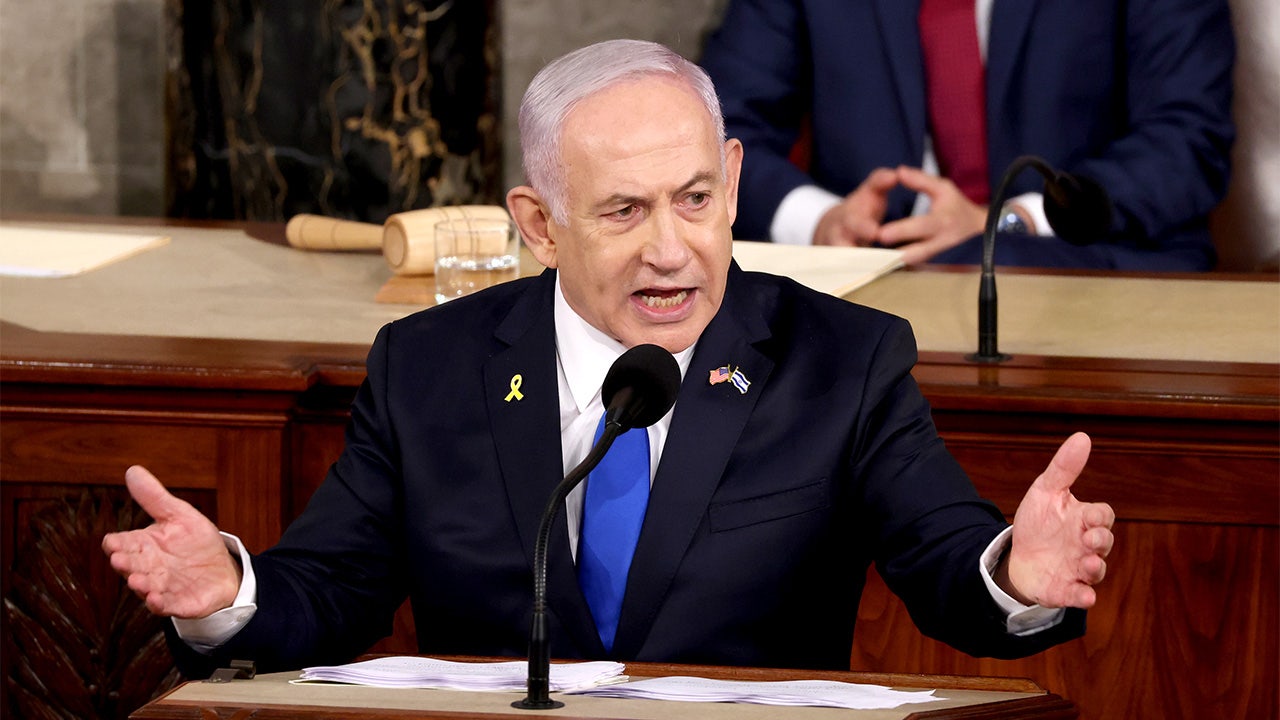Russia first proposed three amendments to the draft text but all were defeated, paving the way for a vote on the draft resolution. There were 11 votes in favour, none against, and four countries abstained: China, Russia, Algeria and Mozambique.
The meeting follows an emergency briefing and consultations last week to address the growing threat posed by militant attacks in one of the world’s key shipping channels.
The United States reported earlier in the day that together with UK naval forces it had shot down 21 drones and missiles fired by Houthi rebels from Yemen on Tuesday in the southern Red Sea.
There have been over two dozen separate attacks on international shipping carried out by the rebel movement which controls much of Yemen, since the 7 October terror attacks by Hamas led to Israel’s offensive in Gaza.
Houthis control the capital Sana’a and large swathes of the country, including the Red Sea coast. They began targeting what they believe to be Israel-bound vessels in mid-November after first launching missile and drone attacks against Israel itself, in support of the extremist group Hamas.
Now they have widened their aim to all international shipping companies, until, they say, Israel allows full humanitarian supplies to enter Gaza, causing many companies to divert ships far to the south around the Cape of Good Hope, driving up costs and threatening to disrupt the entire global supply chain.
Council members previously condemned the Houthi attacks and demanded the release of the Japanese-registered Galaxy Leader and its crew in a 1 December 2023 press statement.
Last week’s briefing and consultations were held following a lack of consensus on a draft presidential statement in late December.
Details of the resolution
The draft resolution condemns in the strongest terms the Houthi attacks on merchant and commercial vessels since 19 November, demanding that the group immediately cease all such attacks, as well as release the Galaxy Leader and its crew.
The text calls for respect for the exercise of navigational rights and freedoms by merchant and commercial vessels in line with international law.
It further “takes note of the right of Member States”, in accordance with international law, to defend their vessels from attacks, including those that undermine navigational rights and freedoms.
The text commends efforts taken so far to protect shipping under fire in the Red Sea and encourages Member States to “support capacity building efforts” of the Yemeni coastguard to protect the sovereignty and integrity of the country.
It also emphasizes the needs to “address the root causes” of the attack that are contributing to regional tensions, to ensure a “prompt, efficient and effective response”.
The resolution condemns the provision of any arms to the Houthis and “urges caution and restraint to avoid further escalation of the situation in the Red Sea and the broader region”.
It urges continued support for the UN-led peace process to end Yemen’s long-running civil conflict.
Japan
Japan’s Permanent Representative, Yamazaki Kazuyiki, who drew up the resolution along with the US, denounced the Houthi attacks and demanded the release of the Galaxy Leader’s crew.
The delegate called upon the Council to speak in a single voice on this issue and expressed hope that the resolution would help create common ground to respond to the security crisis in the vital shipping channel.
Russia
Russian Ambassador Vassily Nebenzia emphasized what he described as the “dangerous side” of the resolution presented by the United States.
This text should not create a precedent, said the delegate, adding that “international law deals with freedom of navigation in peacetime, not in wartime”. He regretted the politicized nature of the text as well as the allegations of politicization voiced by the US towards his country.
Attacks on commercial vessels in the Red Sea have severely disrupted international shipping. (file)
While condemning the attacks on civilian ships, the Russian delegation stated that the objective of the resolution was not ensure the safety of navigation in the Red Sea, but an attempt to legitimize the coalition’s actions “led by the United States and the United Kingdom” and to obtain, indirectly, the Security Council’s “blessings”.
In order to correct the situation in the Red Sea, Mr. Nebenzia said it was important to recognize the “direct consequences” of Israel’s “very violent military operations that have lasted for more than three months in Gaza.
China, Algeria, Sierra Leone
The omission of this “causal link” in the wording of the resolution was also invoked by Algeria, China and Sierra Leone to justify their abstentions.
“We could not associate ourselves with a text that ignores the 23,000 lives that have been taken since last October in the Gaza Strip, summed up Algeria’s top representative, Ambassador Amar Bendjama.
China’s Permanent Representative Zhang Jun saw in the resolutions “ambiguities”, a reason to fear an exacerbation of regional tensions.
United States
After having noted that few of the ships under had actually been chartered by Israeli companies, the United States considered that what is at stake is not a conflict in particular, but the fact that freedom of navigation is being taken hostage.
We should not obscure the fact that Iran offers its support for the Houthis to attack merchant and commercial ships passing through the Red Sea and the Bab El-Mandab strait in violation of resolution 2216 (2015) of the Security Council, insisted Ambassador Linda Thomas-Greenfield.
The threats to navigation rights in the Red Sea are “a global problem that requires a global action”, she said.





